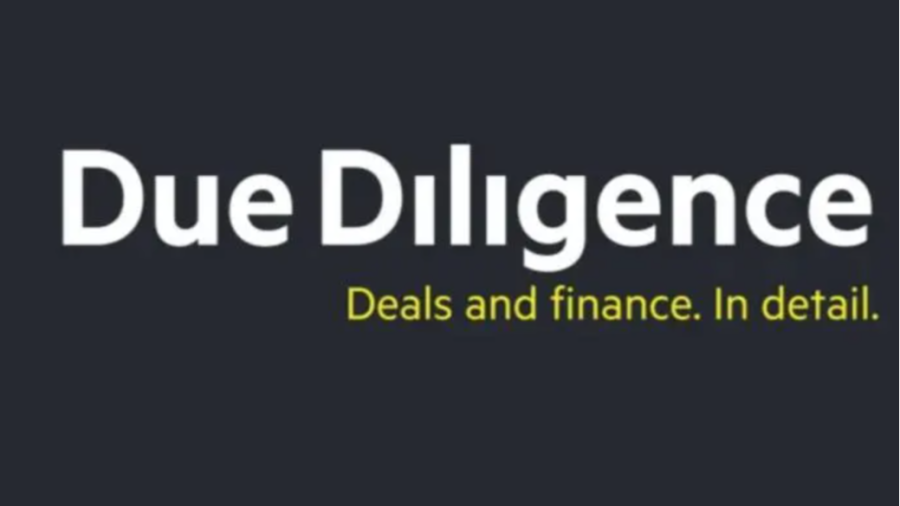
One thing to start: Deutsche Bank’s Frankfurt headquarters and the homes of 10 current and former employees were raided by police on Tuesday as part of an investigation by prosecutors into the bank’s role in the so-called cum-ex scandal.
Welcome to Due Diligence, your briefing on dealmaking, private equity and corporate finance. This article is an on-site version of the newsletter. Sign up here to get the newsletter sent to your inbox every Tuesday to Friday. Get in touch with us anytime: [email protected]
In today’s newsletter:
-
Lessons from KPMG Saudi Arabia
-
Private equity targets fallen pandemic stars
-
The EU mulls a major M&A decision
How not to operate a Saudi Arabian outpost
As the world’s top corporate chieftains, including JPMorgan Chase’s Jamie Dimon and Blackstone’s Steve Schwarzman, flock to Riyadh next week to attend “Davos in the Desert” and kiss the ring of Saudi Arabia’s Crown Prince Mohammed bin Salman, we are again reminded that the kingdom is no paradise.
At KPMG’s office in Riyadh expats said their experiences in Saudi Arabia left them fearing for their personal safety and struggling with their mental health, an investigation by the FT’s Madison Marriage revealed.

One source of distress has been Article 77, a local labour law in the kingdom that allows employers to instantly fire someone without cause. Four KPMG employees dismissed under the rule said their work and residency permits were suddenly revoked.
“They have literally just run a wrecking ball through everyone’s lives,” said one former employee.
Some fired employees say they feared for their personal safety, particularly when the terms of their exits were being negotiated. “When people say [refusing to co-operate with the firm’s proposed exit agreement] will be very bad for you . . . it feels very unsafe. You don’t know what that means,” says one former employee.
KPMG Saudi Arabia said it “did not recognise the allegations that have been made, including those concerned with the safety and welfare of our people”.

Many of KPMG’s issues in Saudi Arabia could stem from its unique structure. Unlike the other Big Four firms, which have placed their Middle Eastern operations under the control of one large entity, KPMG’s international offices are run by a local chief executive and chair.
The past five years have brought little change to KPMG Saudi Arabia’s all-male senior leadership team, led by chair and senior partner Abdullah al-Fozan for more than two decades, despite multiple whistleblower reports to KPMG International seen by the FT.
“There is nothing of respectability in that firm — it’s the wild west,” said one whistleblower.
Many of the 12 current and former KPMG Saudi Arabia employees interviewed by the FT said they agreed to speak to the press out of a desire to protect others from similar experiences.
Beginning in January 2024, a new law is expected to restrict foreign companies from doing business in Saudi Arabia if they do not have a regional headquarters in the country.
Companies preparing to cut the ribbon on new offices in Riyadh might do well to take note.
Private equity eyes fallen stock market stars
For a group of tech and growth start-ups, 2022’s pain is going to be 2023’s dilemma.
More than 400 US companies went public in the “sad desk salad” days between 2019 and 2021. They include Robinhood, Beyond Meat and Sweetgreen.
But an analysis from DD’s Sujeet Indap and the FT’s Nicholas Megaw revealed 76 per cent of that group are now trading below their respective listing price. Those companies typically hit their 52-week highs in late 2021. That means by 2023, those highs will no longer fall within the previous 12 months.
CEOs and boards will eventually need to seriously consider strategic alternatives, as the euphemism for starting a sales process goes.
As it happens, former high-fliers Poshmark and ForgeRock have both sold themselves at prices below their IPO levels in recent weeks. By 2023, Wall Street observers note, more companies will decide to put themselves on the block as a tough economy and fundraising environment will make it difficult to raise new cash.
“It’s really hard to be a public company these days,” said one prominent private equity investor. “Good news falls by the wayside and bad news is punished. It is the worst of both worlds.”
Poshmark, an online retailer, sold itself to South Korea’s Naver at a 60 per cent discount to its listing price. Still, the deal activity among stricken IPOs is supposed to be a big boon for private equity firms which collectively have $500bn of dry powder in the US.
European telecoms groups await call from Brussels
European telecom groups have been bending the ears of regulators in Brussels for years with one small ask: please let us merge.
They’re currently awaiting an opinion due from the European Union court on Thursday over whether the EU was right in blocking the proposed merger of the UK businesses of Telefónica’s O2 and CK Hutchison’s Three in 2016.
Why do they care? A verdict in their favour could potentially unblock a flurry of deals in the sector if the court backs an original ruling by the General Court against the EU commission.
This would be welcome news by France’s Orange and Spain’s MasMovil, which announced earlier this year that they are in exclusive talks to combine their Spanish businesses.
It won’t be easy. The companies will need to convince officials at the EU’s competition unit that removing one player from the market is actually good for customers. Proponents of telecoms deals argue that the synergies derived from deals and their subsequent investment in infrastructure help keep prices low.
However, those who know the EU’s thinking well point to the institution’s long-held “dogma” that removing a major telecoms operator from the market is bad news for competition.
Expect a drawn-out probe.
Job moves
-
The Bank of England has appointed three new non-executive directors: City veteran Jitesh Gadhia, BT general counsel Sabine Chalmers and Diageo general counsel Tom Shropshire.
-
Kirkland & Ellis has poached M&A lawyer Toby Parkinson, Clifford Chance’s co-head of infrastructure, as a partner in its London office.
-
Skadden has hired John Kocoras, former first assistant United States attorney for the Northern District of Illinois, as a partner in its litigation group, based in Chicago.
-
Willkie Farr & Gallagher has hired Larissa Marcellino, formerly general counsel of private capital firm Aquiline Capital Partners, as a private equity partner based in New York.
Smart reads
Chip wars With its much-anticipated IPO just around the corner, UK-based chip design company Arm is pulling a risky move: suing Qualcomm, one of its biggest customers. The FT’s Richard Waters detangles the complex case to show how interdependent the two groups truly are.
After the windfall From Moderna chief executive Stéphane Bancel to Zoom CEO Eric Yuan, the pandemic has churned out a slew of newly minted billionaires. As the era of cheap money winds to a close, some fortunes have faded, Bloomberg reports.
The house always wins Investors are nursing their wounds from the Spac boom-turned bust. Sponsors raked in millions anyway, the Wall Street Journal reports.
News round-up
Activist Starboard urges Salesforce to lift margins after taking stake (FT)
Goldman Sachs announces overhaul as quarterly profit slides (FT)
EY’s US partners flouted conflict of interest rules, regulator says (FT)
Meta to sell Giphy after UK regulator blocks $315mn deal (FT)
Dan Loeb’s Third Point builds stake in Colgate (CNBC)
KKR to push further into Japan as yen hovers at 32-year low (FT)
Boutique advisory Lazard to move to new UK base in Marylebone (Financial News)
Real estate investors circle as property funds offload offices and warehouses (FT)
Cement maker Lafarge agrees $780mn US penalty over payments to Isis (FT)
Venture debt: down rounds push start-ups to seek funds elsewhere (Lex)
Recommended newsletters for you
Cryptofinance — Scott Chipolina filters out the noise of the global cryptocurrency industry. Sign up here
The Lex Newsletter — Catch up with a letter from Lex’s centres around the world each Wednesday, and a review of the week’s best commentary every Friday. Sign up here